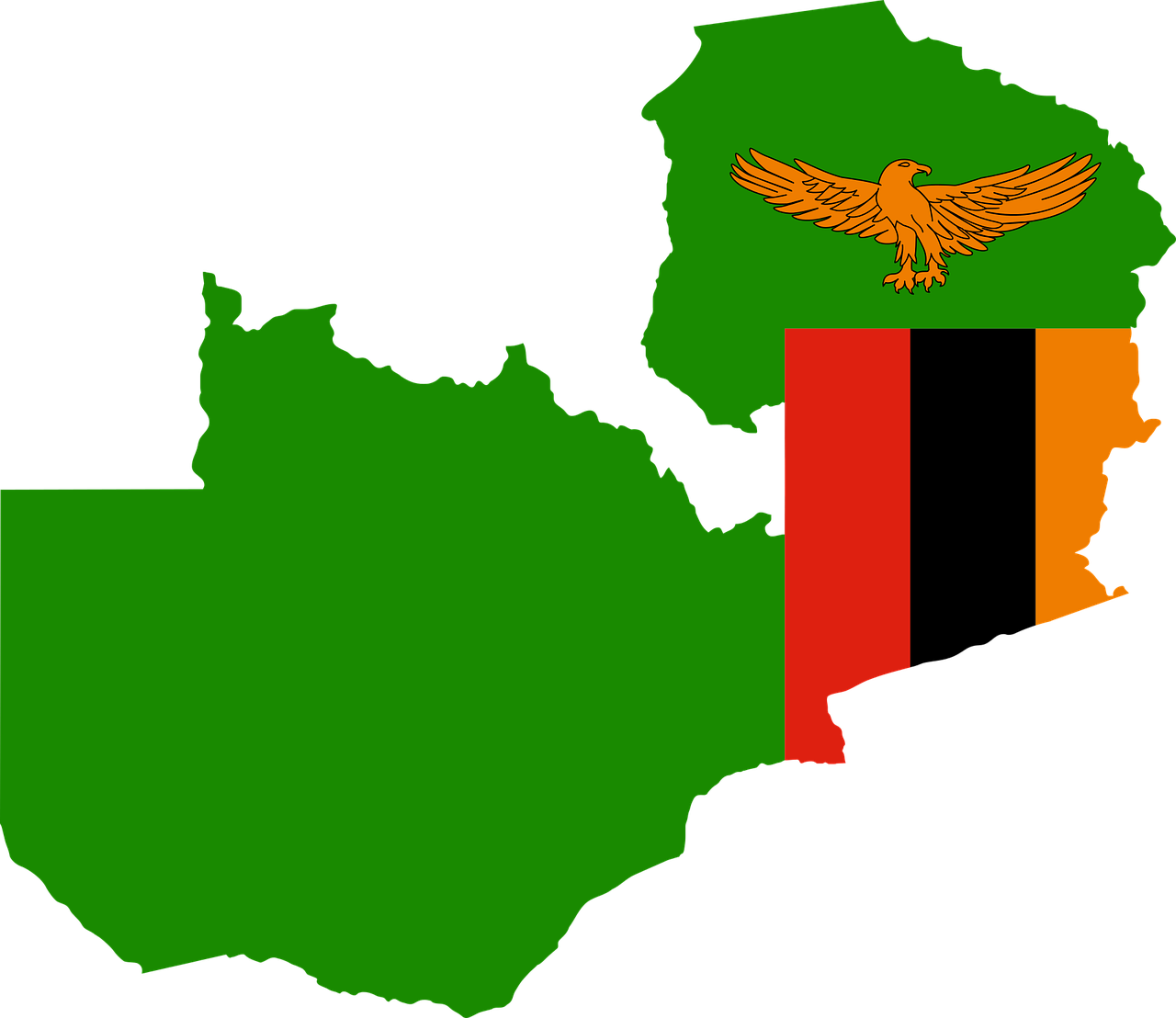Zambia
Overview
Zambia, the "Jewel of Africa"
Zambia, often hailed as the "Jewel of Africa," is a landlocked nation that boasts a rich tapestry of landscapes, cultures, and history. Situated in the southern part of the African continent, it is home to the mighty Zambezi River, the stunning Victoria Falls (locally known as Mosi-oa-Tunya or "The Smoke That Thunders"), and vast national parks teeming with diverse wildlife.
Lusaka, the capital, is a bustling metropolis that encapsulates Zambia's journey from a colonial past to a promising future. It's a city where modernity meets tradition, where contemporary buildings and shopping complexes coexist with vibrant markets and historical monuments. Beyond Lusaka, cities like Livingstone, named after the famous explorer David Livingstone, offer a blend of history, adventure, and natural beauty.

Key indicators

Population

GDP per capita

Nominal GDP

Purchasing Power Parity GDP

Main export

Foreign direct investment

Stock market capitalization

GDP growth rate
- Economic Snapshot
- Business Environment
- Startup Ecosystem
- Infrastructure & Technology
- Opportunities & Challenges
- Cultural Insights
Zambia's economy has traditionally been anchored in its vast mineral wealth, especially copper. The Copperbelt region, aptly named for its rich deposits, has been the epicenter of mining activities for decades. However, Zambia's economic narrative is not just about minerals. Agriculture, especially maize, tobacco, and horticultural products, plays a significant role, employing a large portion of the population.
Tourism is emerging as a vital sector, with Zambia's national parks, such as South Luangwa, Lower Zambezi, and Kafue, drawing wildlife enthusiasts from around the globe. The allure of Victoria Falls, one of the Seven Natural Wonders of the World, adds to Zambia's appeal as a premier tourist destination.
Zambia offers a conducive environment for business and investment. Recognizing the importance of a diversified economy, the government has initiated reforms to bolster various sectors, from agriculture and manufacturing to tourism and technology. The Zambia Development Agency serves as a pivotal institution, facilitating investments, promoting exports, and fostering an entrepreneurial ecosystem.
Zambia's strategic location, serving as a gateway to eight other African countries, enhances its trade and investment potential. The nation's commitment to regional integration, as evidenced by its membership in bodies like the Southern African Development Community (SADC) and the Common Market for Eastern and Southern Africa (COMESA), further bolsters its economic prospects.
Zambia's startup ecosystem, though nascent, is showing signs of vibrancy. Lusaka, in particular, is becoming a hub for innovation and entrepreneurial ventures. The growth of tech hubs and incubators, such as BongoHive, is testament to the nation's focus on fostering a startup culture. From fintech solutions aimed at enhancing financial inclusion to agritech innovations that seek to revolutionize farming practices, Zambian startups are carving a niche for themselves.
Collaboration between academia, the private sector, and the government is fostering a culture of innovation, research, and development. Access to funding, mentorship programs, and market linkages are ensuring that startups not only take root but also thrive and scale.
Infrastructure development is pivotal to Zambia's growth strategy. Roads, railways, and energy projects have seen significant investments in recent years. The government's focus on enhancing digital infrastructure is evident in its push for greater internet connectivity, digital literacy, and e-governance initiatives. Mobile money platforms have revolutionized banking in Zambia, offering financial services to those who were previously unbanked.
Zambia is also focusing on sustainable energy solutions. With abundant sunlight and numerous rivers, solar and hydropower projects are gaining momentum. These initiatives underscore Zambia's commitment to sustainable development and its vision for a future powered by clean and renewable energy sources.
Zambia, with its strategic location, abundant resources, and youthful population, offers a plethora of opportunities. Sectors like mining, agriculture, tourism, and energy are particularly promising. The government's focus on industrialization, value addition, and export promotion presents numerous avenues for collaboration and investment.
However, challenges persist. Issues related to land ownership, bureaucratic hurdles, and the need for further infrastructural development are areas that need attention. But with challenges come opportunities. Zambia's resilience, coupled with its vision for the future, makes it a compelling destination for investors and entrepreneurs.
-
Zambia is a multicultural country with a rich history and heritage. The country is home to over 70 ethnic groups, each with its own unique culture and traditions. The most populous ethnic groups in Zambia are the Bemba, the Tonga, and the Lozi.
-
Zambians are generally friendly and welcoming. They are also known for their strong sense of community and family.
-
Some of the most important cultural traditions in Zambia include:
- Greetings: It is customary to greet people with a handshake and a greeting in their language. The most common greetings are "Mulishani" (Bemba) and "Mwashibukeni" (Tonga).
- Hospitality: Zambians are known for their hospitality. They often invite guests into their homes and offer them food and drinks. It is considered rude to refuse a Zambian's hospitality.
- Dressing: Zambians dress in a variety of styles, depending on the occasion. However, it is important to dress respectfully when visiting Zambia. This means avoiding revealing clothing and dressing appropriately for the occasion.
- Food: Zambian food is delicious and diverse. Some of the most popular dishes include:
- Nshima: A starchy staple food made from maize flour.
- Ifishimu: A stew made with fish, tomatoes, and onions.
- Kapenta: A small dried fish that is often eaten with nshima.
- Impwa: A caterpillar dish that is considered a delicacy.
- Music and dance: Zambia has a vibrant music and dance culture. Some of the most popular Zambian musical genres include kalindula, chimurenga, and Zamrock. Traditional Zambian dance is characterized by its energetic and graceful movements.
Here are some tips for businesses and investors operating in Zambia:
- Be respectful of Zambian culture and traditions. This includes being respectful of traditional customs and beliefs.
- Be patient and understanding. Zambians are generally relaxed and easy-going. It is important to be patient and understanding when doing business in Zambia.
- Build relationships. Zambians value personal relationships in business. It is important to build rapport with your Zambian counterparts before getting down to business.
- Be ethical and responsible. Zambians are looking for businesses that are ethical and responsible in their dealings.

Investment Landscape & Opportunities in Zambia
- Start-up & SME Investments
- Impact & Green Investments
- Government Bonds & Stock Market
- Public-Private Partnerships
- Foreign Direct Investments
- Commodities & Infrastructure Investments
- Real Estate Development
- Cultural and Creative Industries

Leading
startups in Zambia
Comming up soon

